Can Cats Eat Bananas? A Guide to the Safety and Benefits
- 14 Feb 2025 15:43
Bananas are a popular, nutritious fruit for humans, packed with vitamins, minerals, and natural sugars. But if you're a cat owner, you may wonder whether this fruit is safe for your feline friend. The good news is that cats can eat bananas in moderation, but there are some important things to consider before offering this tropical fruit to your pet.
In this article, we’ll explore the potential benefits and risks of feeding bananas to cats, how to serve them safely, and how much is okay for your cat to consume.
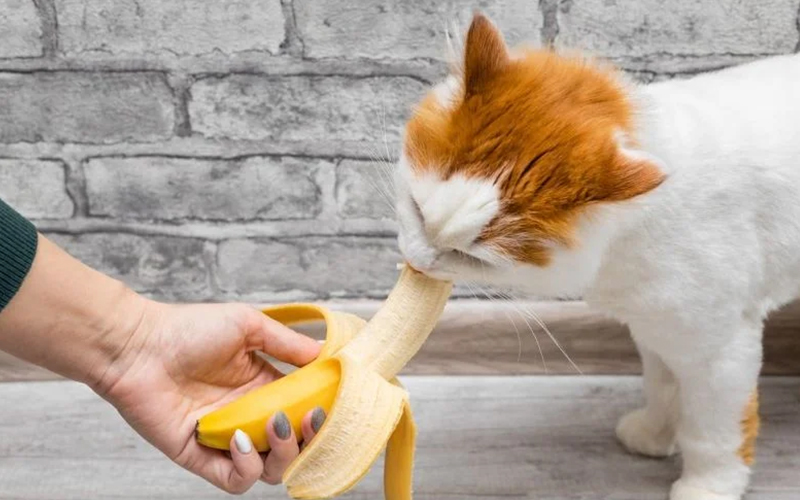
Are Bananas Safe for Cats?
Yes, bananas are generally safe for cats to eat in small amounts. They are not toxic and do not pose a significant health risk to cats when offered occasionally. However, it’s important to remember that cats are obligate carnivores, meaning their diet primarily consists of meat. While bananas are not harmful, they do not provide the essential nutrients that cats need from animal-based proteins.
Bananas should not replace a balanced, high-quality cat food, but they can be offered as an occasional treat. If you choose to share a bit of banana with your cat, there are a few things to keep in mind.
Nutritional Benefits of Bananas for Cats
Bananas contain several nutrients that could potentially offer some benefits to your cat, though these are secondary to the nutrients found in their regular cat food. Here are some of the key nutrients bananas provide:
Potassium: Bananas are high in potassium, which helps maintain healthy heart function, regulate blood pressure, and promote muscle health. While cats can get potassium from their regular food, small amounts of banana can provide an extra boost.
Vitamins: Bananas contain several vitamins, including vitamin C and vitamin B6. Vitamin C supports the immune system, while vitamin B6 is important for brain function and red blood cell production. However, cats can synthesize vitamin C on their own, and they typically receive enough vitamin B6 from their meat-based diet.
Fiber: The fiber in bananas may help with digestion and support healthy bowel movements. However, since cats don’t require as much fiber as humans, feeding bananas in moderation is key to avoiding digestive upset.
Natural Sugars: Bananas contain natural sugars, which provide a quick source of energy. However, since cats have little need for sugars, too much banana can contribute to obesity or digestive issues over time.
Potential Risks of Feeding Bananas to Cats
While bananas are not toxic to cats, there are a few potential risks to consider:
High Sugar Content: Bananas are naturally high in sugars, which can be hard for cats to digest in large amounts. Too much sugar can lead to weight gain, diabetes, or other metabolic issues, especially in cats who are prone to obesity. It’s important to keep banana portions small.
Digestive Upset: Cats are not accustomed to eating large amounts of fruit, and consuming too much banana may lead to diarrhea, gas, or an upset stomach. The fiber content in bananas may also cause digestive issues for some cats, particularly if they have sensitive stomachs.
Choking Hazard: Banana pieces can be a choking hazard for cats if they’re not cut into small, manageable pieces. Always slice the banana into tiny pieces to make it easier for your cat to chew and swallow safely.
Not a Complete Food: Bananas do not provide the essential nutrients that cats need, such as taurine, arachidonic acid, or vitamin A. Cats are obligate carnivores, so their diet should primarily consist of animal-based proteins to meet their nutritional needs. Offering bananas as a treat should never replace a balanced cat food diet.
How to Safely Serve Bananas to Cats
If you decide to give your cat a small amount of banana, follow these tips to ensure they enjoy it safely:
Peel the Banana: Always peel the banana before giving it to your cat. The peel is not toxic, but it can be tough and difficult for cats to digest, potentially leading to digestive upset or choking.
Cut Into Small Pieces: Slice the banana into small, bite-sized pieces to reduce the risk of choking. Small portions also help prevent your cat from eating too much at once.
Serve in Moderation: Bananas should be an occasional treat and not a regular part of your cat's diet. Offering too much banana can lead to weight gain, diabetes, or digestive issues. A few small pieces once in a while should suffice.
Watch for Allergic Reactions: While rare, some cats may have allergic reactions to certain fruits, including bananas. If your cat shows any signs of an allergy (such as itching, swelling, or vomiting) after eating banana, discontinue feeding it and consult with a professional.
Avoid Banana Products: It’s best to avoid feeding your cat any banana-flavored products, such as banana chips, banana bread, or banana smoothies. These often contain added sugars, preservatives, or other ingredients that are not safe for cats.
How Much Banana Can Cats Eat?
Bananas should only be offered as an occasional treat, and the amount you give depends on your cat's size and individual tolerance. As a general guideline:
Small cats: 1-2 small slices of banana.
Medium to large cats: 2-3 small slices of banana.
Bananas should only make up a very small portion of your cat’s diet. Keep in mind that treats should only constitute about 10% of your cat’s daily caloric intake. The majority of their nutrition should come from high-quality cat food that meets their specific dietary needs.
Conclusion
In conclusion, bananas are safe for cats in moderation, and they can provide some health benefits, including potassium, fiber, and vitamins. However, they should never replace a balanced diet, as bananas do not provide the essential nutrients that cats require. Too much banana can lead to digestive upset, weight gain, or other health issues.
If you choose to offer banana to your cat, be sure to peel it, cut it into small pieces, and serve it as an occasional treat. Keep the portions small, and always monitor your cat for any signs of discomfort or digestive issues.
For more information about your cat’s health and diet, consider using PettureX, a pet AI software that provides 24-hour online consultations and pet image recognition. PettureX can help you assess your cat's overall well-being and offer personalized advice on what foods are safe for them.
By taking the right precautions and offering treats like bananas in moderation, you can help your cat stay healthy and happy while enjoying the occasional tasty snack.
Related
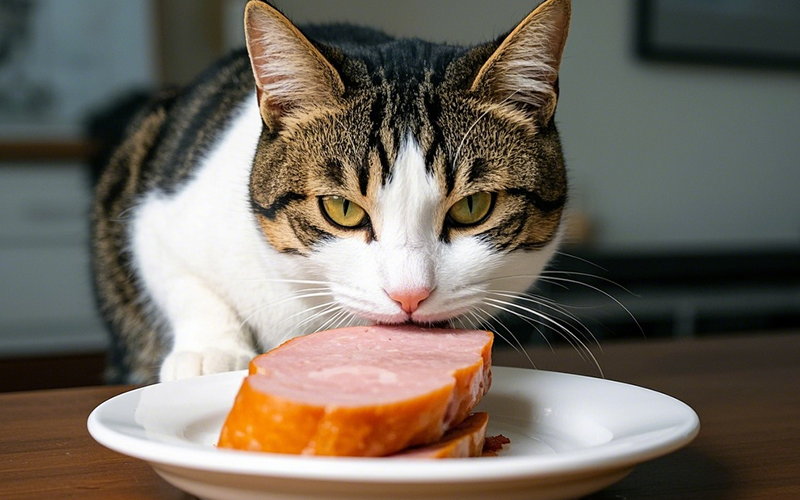
Can Cats Eat Deli Ham? A Meaty Treat That Comes with Caution
- 2 May 2025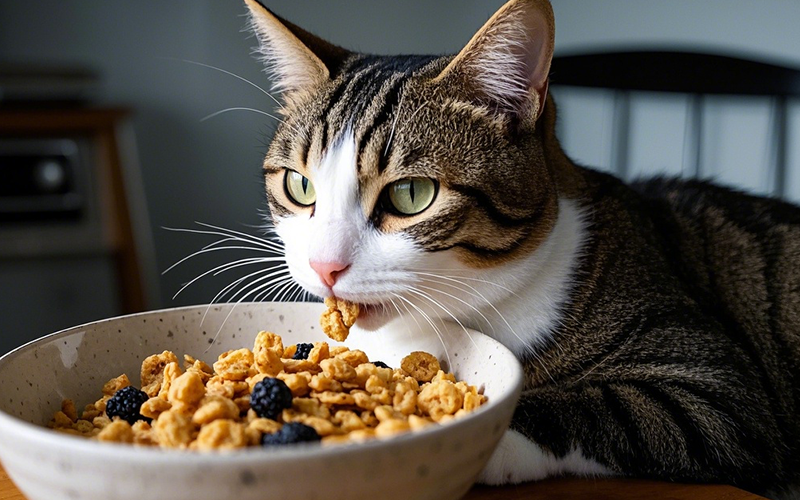
Can Cats Eat Granola? Is This Crunchy Snack Safe for Your Feline Friend?
- 2 Apr 2025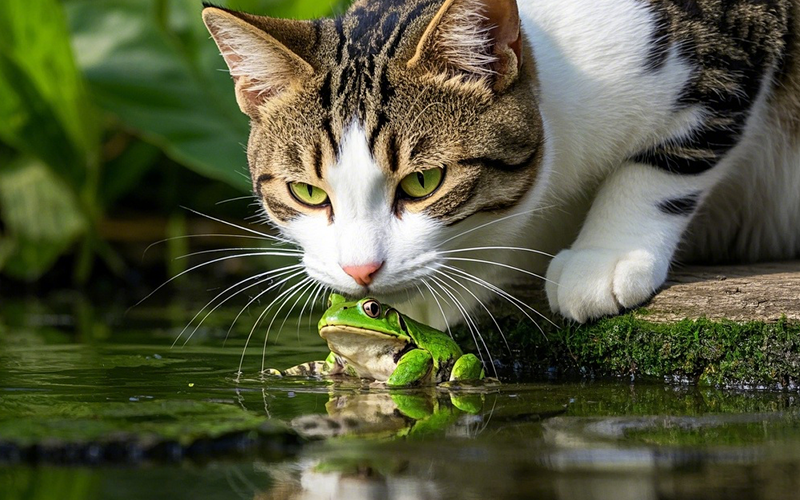
Can Cats Eat Frogs? What You Should Know About Frogs and Your Feline Friend
- 2 Apr 2025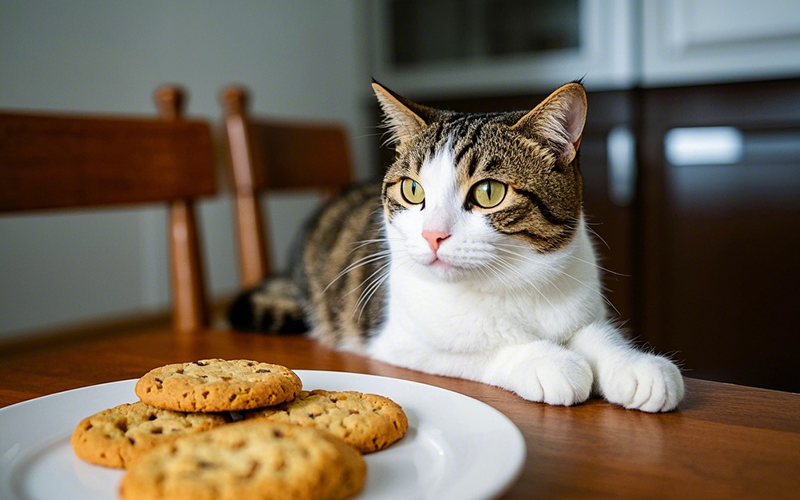
Can Cats Eat Graham Crackers? A Sweet Snack or a Risky Treat for Your Feline Friend?
- 2 Apr 2025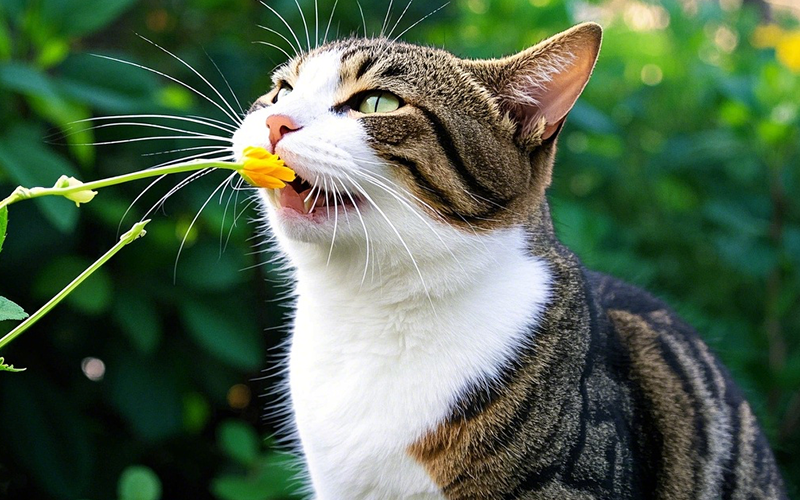
Can Cats Eat Flowers? What You Should Know About Floral Treats for Your Feline Friend
- 2 Apr 2025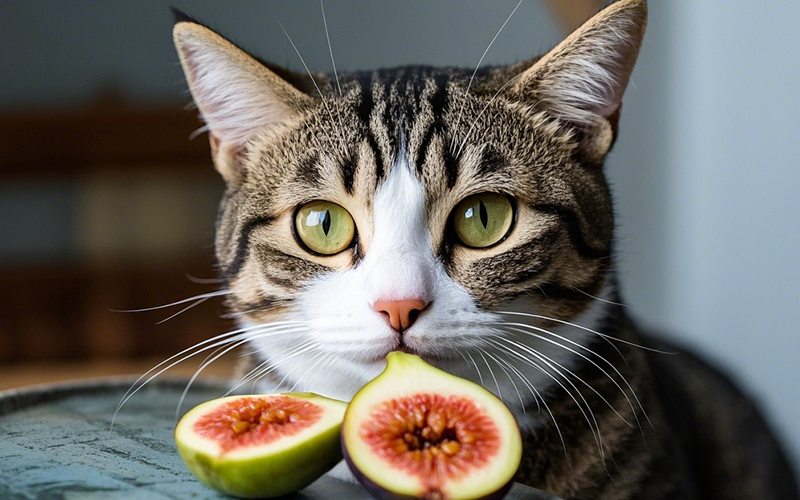
Can Cats Eat Figs? What You Need to Know Before Sharing This Fruit
- 2 Apr 2025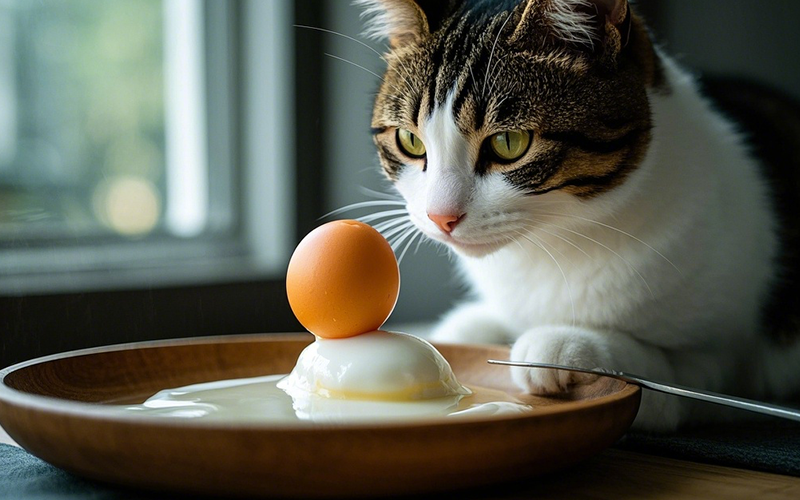
Can Cats Eat Egg Whites? The Facts You Need to Know
- 2 Apr 2025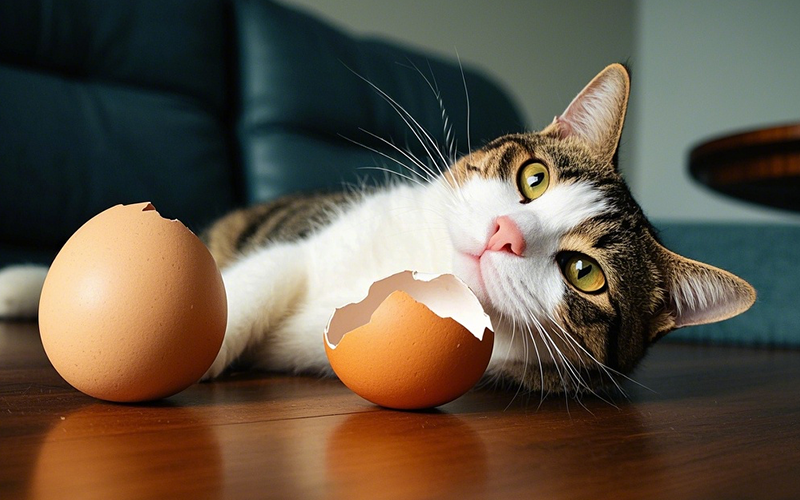
Can Cats Eat Egg Shells? The Benefits and Risks of This Crunchy Treat
- 2 Apr 2025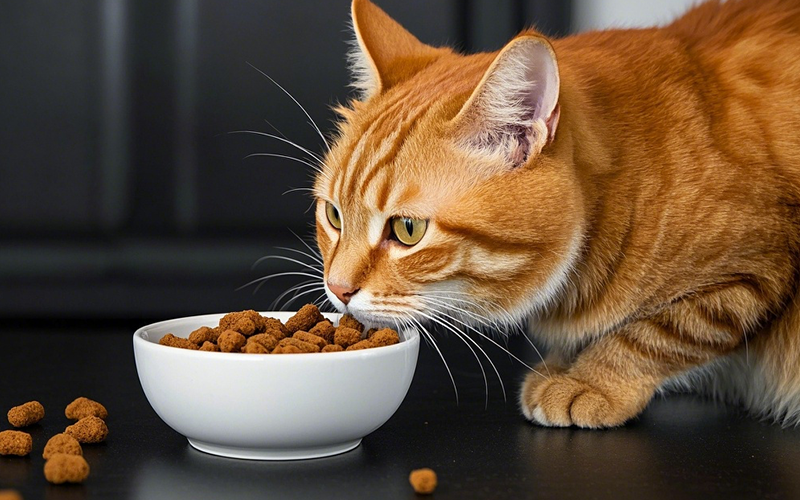
Can Cats Eat Dry Dog Food? Why It’s Not a Good Idea
- 2 Apr 2025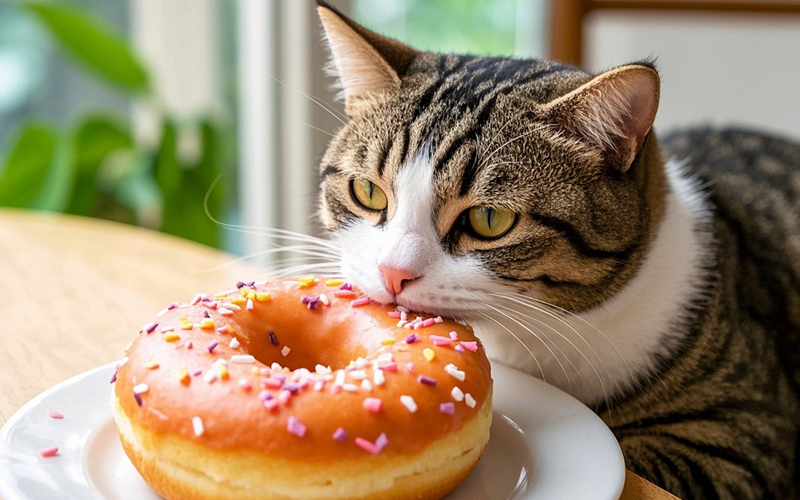
Can Cats Eat Donuts? A Sweet Treat Best Avoided
- 2 Apr 2025
